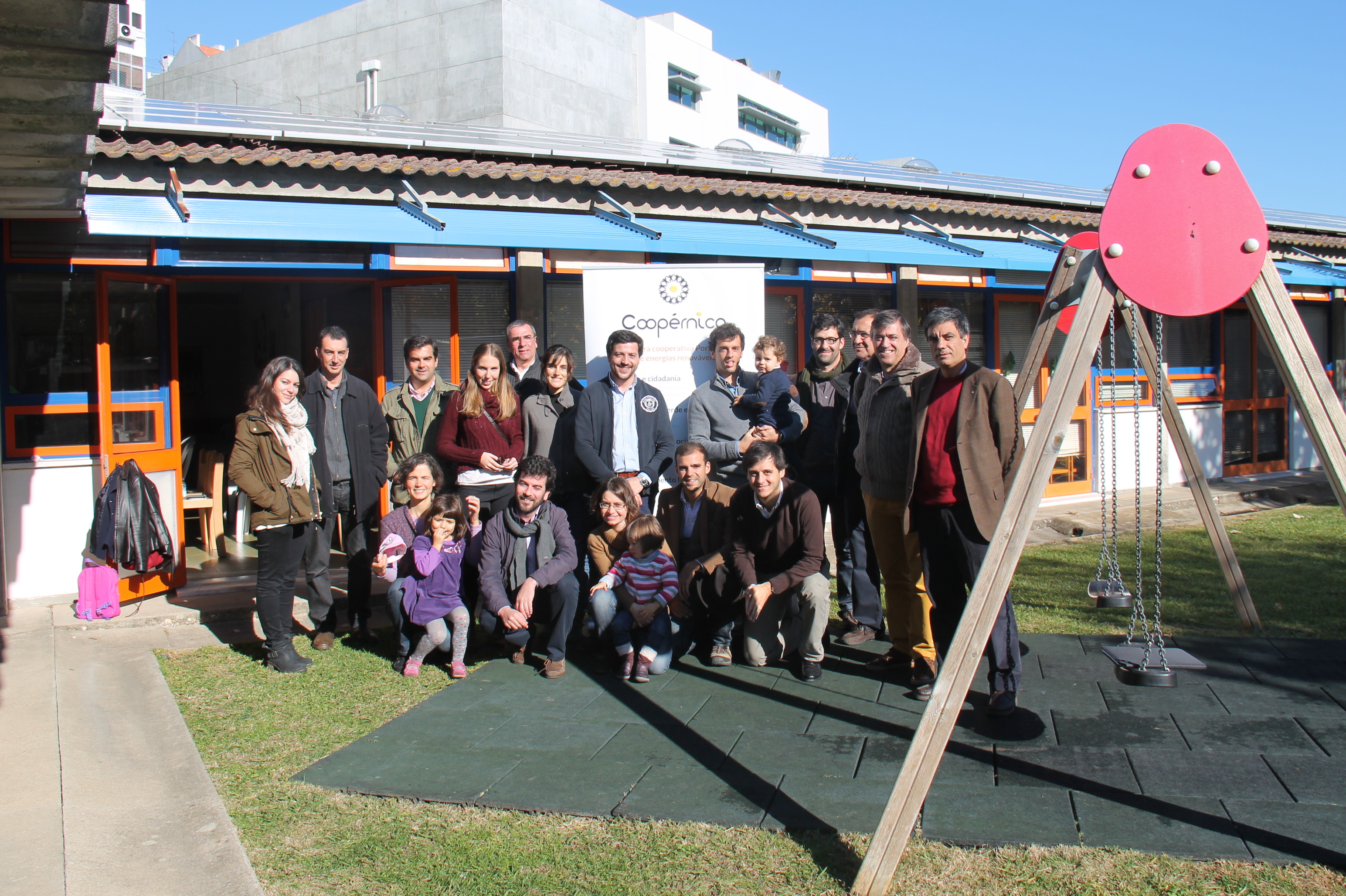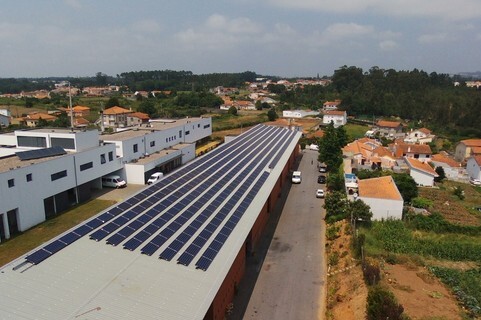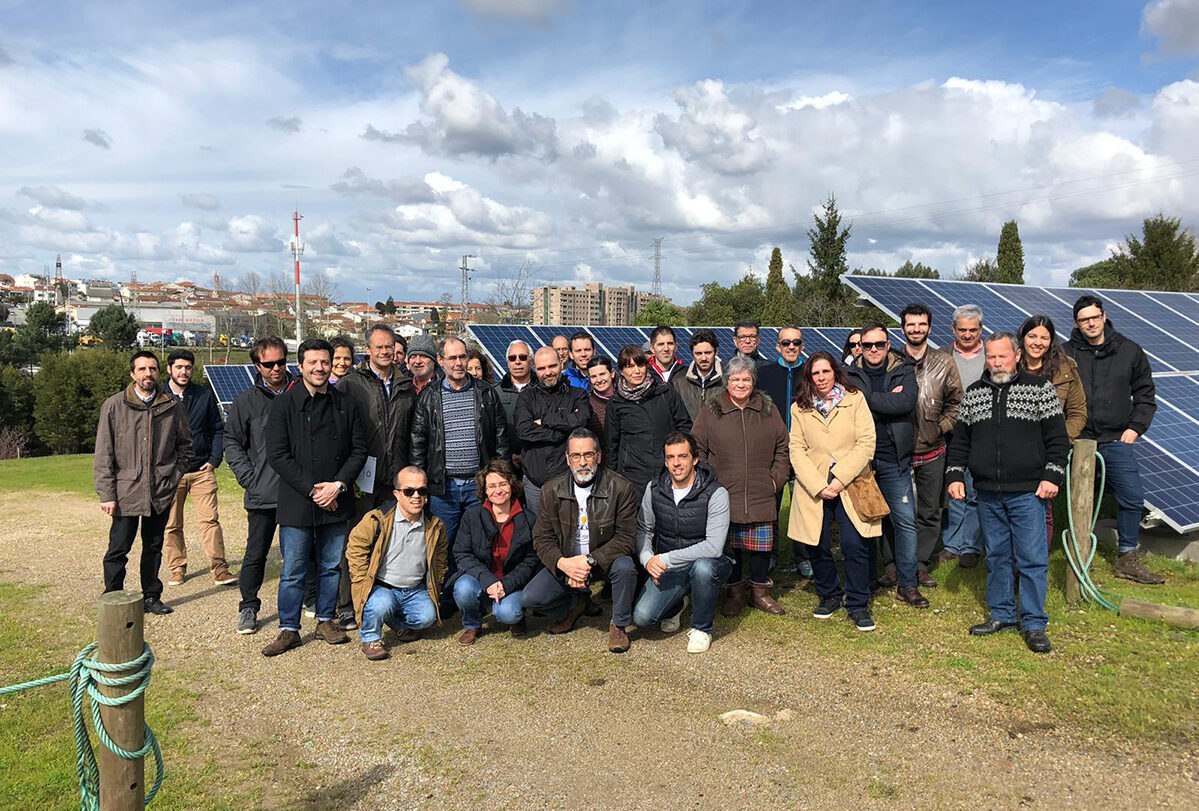Stories
November success story: A decade democratising Portugal’s energy system
Community energy is key to action on the climate crisis. It can empower people, boost local economies, and reinvigorate communities. Community-led initiatives play an important role in the transition towards a 100% renewable and just energy future. Success stories of community energy projects can be found all over Europe. At REScoop.eu we want to highlight these stories to further accelerate the movement towards a cleaner and democratic system.
This month, our journey takes us to Portugal to celebrate the tenth anniversary of Coopérnico, the largest energy cooperative in the country. There, we discover their inspiring story and the challenges they faced in the past ten years.
The birth of Coopérnico
Coopérnico, a Portuguese energy cooperative, held its third election assembly last Saturday in Lisbon. This assembly was a special one because it was also the celebration of the cooperative’s tenth anniversary. After the meeting, members had lunch together, cheered for the cooperative and its future, and debated on the history of energy cooperatives and the cooperative movement in general.
A decade ago, in 2013, Coopérnico was founded by a group of 16 people from different backgrounds with a common goal: energy democracy. More specifically, they wanted to give citizens the opportunity to invest their savings in renewable energy. Back then, they could take advantage of a beneficial feed-in tariff available for small installations. Nuno Brito Jorge, Coopérnico’s founder and current president, reflects on their inspiration: “We all should have the right to decide the impact we want to have with our money”.
Today, with over 4,400 members and more than €2 million invested in renewable energy production, Coopérnico proudly boasts 37 PV installations across 10 regions of mainland Portugal, generating a total capacity of 2,500 kWp – all funded by citizens, no financial institutions involved.

Overcoming challenges and building alliances between cooperatives
Despite Coopérnico’s current success, the journey was not without challenges. Initially they struggled to secure funding for their first installations as citizens didn’t trust the project yet and were hesitant to invest. REScoop.eu connected them with other like-minded energy cooperatives in Europe. Som Energia from Spain, Beauvent from Belgium, and Waterland from the Netherlands jumped in to provide the capital and skills needed to kick off these first projects. Together they established a consortium in which Coopérnico had 17% of shares and could gradually buy back up to 100% as the cooperative´s member base and social capital would grow.
When people started seeing the PV panels on the roofs and revenues began to flow, the membership started growing rapidly. After less than two years, they had already returned all the borrowed capital.
Dirk Vansintjan, REScoop.eu president, highlights the role of the European federation of cooperatives in fostering cooperation between cooperatives.
“By fostering collaborations and solidarity between energy cooperatives in a European network, cooperatives are helping one another to overcome the challenges they face. This becomes particularly visible when established cooperatives provide bridge loans to cooperatives just starting their journey as citizens often only come on board once a project is up and running and they can see it with their own eyes.”
Similarly to how Coopénico received support from other European cooperatives, the Portuguese cooperative played a vital role in the establishment of the Greek energy community Hyperion in 2021. They covered a significant portion of their initial investment. This action fills Nuno with pride.
“It was a huge pride. It was giving back to those who were starting what others had already done for us. This is how cooperatives work: they don't compete, they cooperate.”
In this context, Nuno also highlights the role of cooperatives in society and how this marked their first steps.
“In the beginning, we found it difficult to develop economic activities within the cooperative model. There is an understanding that cooperatives must be in direct competition with private companies, adhering to the assumption that it is just the market at work. However, cooperatives have a different nature – our capital are citizens – and our objectives are different. Our objective is not profit-making, it is directly benefitting the society and our planet.”

Becoming an energy supplier
In 2019, Coopérnico achieved a significant milestone by becoming an energy supplier.
Currently managing 3,900 supply contracts, although it wasn’t easy – they navigated the energy price crisis with resilience. As the cooperative relies on purchasing green energy from the market to complement its own production, they couldn’t escape from the volatile market prices during the crisis. Ana Rita Antunes, founder and current coordinator of Coopérnico, explains their response to one of their hardest moments.
“In response to the crisis, we switched our customers from fixed to dynamic tariffs. Although this made us lose more than half of our customers, it was the best possible reaction. The dynamic tariff is the most transparent and the one that best aligns with the energy transition. Today, we've not only recovered but surpassed our previous figures, tripling the number of contracts and doubling the energy sold each year.”

Looking ahead, Coopérnico plans to invest in new production facilities and diversify its portfolio by introducing wind and hydro generation. This will allow them to become independent from market dynamics and mirror the energy mix they envision for the energy transition.
A decade of change
In these ten years, Coopérnico has transformed into the largest energy cooperative in Portugal and a reference for new initiatives in other countries. Ana Rita reflects on this journey.
“Our biggest challenge has been to gain respect in the energy sector. We were often not taken very seriously and seen as ‘rebels’ who wanted to enter a large and powerful sector. A decade later, we are perceived differently. We are now starting to be seen as a possible and even desirable model, be it in production, investment, supply or services.”
Internally, Coopérnico has also evolved over the years, having now 11 employees and approximately 40 active volunteers, including non-remunerated board members. Among the 16 founding members, some continue playing an active role, while others remain supporting as members.

Nuno, who served as the President of the Board this decade, has decided to step back, passing the torch to the new faces. Following last week’s elections, João Crispim is set to take on the role of director in January 2024, while Nuno will transition to the Board of Trustees.
João envisions Coopérnico expanding its renewable energy production, diversifying its energy mix, and working in a network of local energy communities. These communities will supply electricity to their members while Coopérnico will support them in the management of their local production. He also anticipates growth in their electricity customer base, foreseeing “a future where energy production is more easily shared among members, fostering a fairer, renewable, and accessible energy system”.